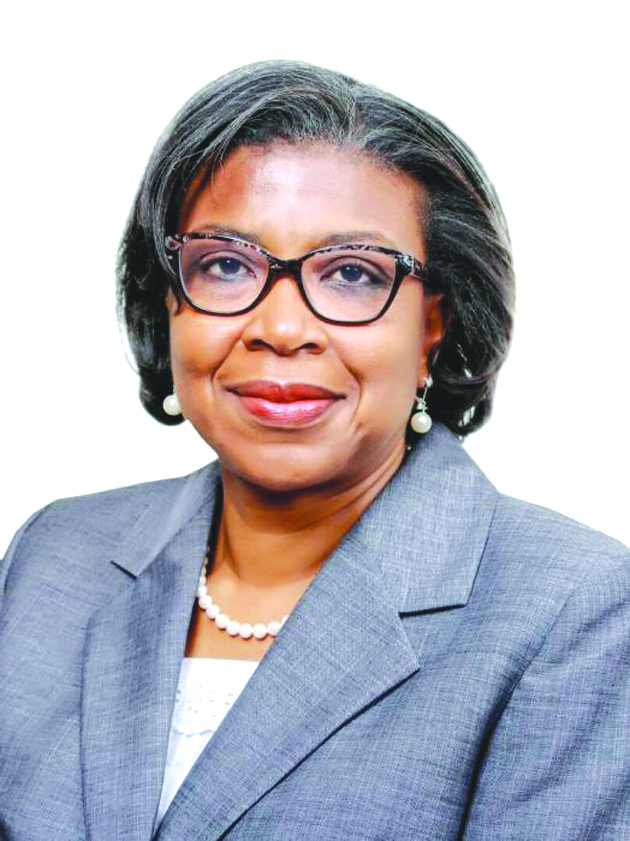Nigeria appears to be gradually walking into another debt trap a little over a decade after Paris and London Club of creditors wrote off its multi-billion Naira debt
Nigeria’s public debt profile recorded a 3.6 percent increase in the third quarter of 2017. A recent statement issued by the Debt Management Office (DMO) showed that “the total public debt stock, comprising the Federal Government, states and Federal Capital Territory’s, stood at N20.37 trillion as of September 30, 2017, showing a marginal increase of 3.6 per cent from the N19.634 trillion as of June 30, 2017.”

A breakdown of the debt stock during the period under review showed that domestic debt accounted for 76.96 per cent, while external debt accounted for 23.04 per cent. Specifically, the domestic debt stock was N15.68trillion, an increase of 4.1 per cent compared to N15.03 trillion as of June 30. The external debt stock stood at N4.69 trillion, a marginal rise of 1.9 per cent above the N4.6 trillion figure as of June 30. “These debt data lend credence to the government’s claims that the public debt stock is skewed in favour of domestic debt, which is partly responsible for the high debt service figures,” the DMO said.
Statistics from the DMO also showed that Nigeria’s total public debt stock rose by N8 trillion between September 2015 and September 2017. It grew from N12.36 trillion in September 2015 to N20.37 trillion in September 2017. This represents an increase of 64.81 percent.
The external component of the country’s total debt stood at N2.09 trillion in 2015. It grew to N4.60 trillion as at September 30, 2017, which is a record of 124.4 percent increase. Similarly, the domestic arm of the debt component rose from N10.27 trillion in September 2015 to N15.68 trillion in September this year. Consequently, the domestic debt rose by N5.41trillion, which represents 52.68 per cent increase.
The growing external debt represents a new direction in Nigeria’s debt profile. The Federal Government is being swayed in favour of external borrowing due to the high cost of finance in the country.
Despite the rising debt profile, the Senate has given approval to President Muhammadu Buhari to obtain an external loan of $5.5 billion. While $3billion of the foreign loan would be used to refinance some local debts, $2.5billion would be used to finance the deficit in the 2017 budget. In addition, while $3 billion would be sourced through Euro bond, the remaining $2.5 would come from other sources in the international capital market.

President Buhari while requesting for the approval of the Senate to secure the loan, allayed the fears on its possible effect, saying that the proposed external borrowing of $3billion re-finance maturing Domestic Debt would not lead to an increase in the public debt portfolio against the backdrop that the debt already exists, in the form of high interest short term Domestic Debt. According to him, the substitution of Domestic Debt with relatively cheaper and long-term external debt will lead to a significant decrease in Debt Service Cost, just as he said that government’s moves in re-financing of Domestic Debt through External Debt would also achieve more stability in the Debt Stock. He added that it would create more borrowing space in the domestic market for the private sector.
The DMO also stated that the Federal Government would save N166 billion by borrowing externally to refinance local debt and finance the deficit in the current budget. Patience Oniha, Director-General of DMO recently assured that the Federal Government was not on a borrowing spree. According to her, the borrowings are planned and the DMO will ensure that the interest rates on the external borrowing are not high. She also promised the borrowing would be effectively managed.
Nevertheless, Nigeria’s burgeoning debt profile has become a source of apprehension among its citizens. That concern is understandable: Nigeria had in 2006 exited a $30 billion debt conundrum by the London and Paris Club of creditors.
Many had wished that Nigeria never relapsed into that era. But for a developing economy that almost entirely depends on crude oil whose price has witnessed a precipitous slide, coupled with the country’s low tax-to-GDP revenue, it would amount to wishful thinking.
But many who understand the dynamics of managing an economy have called for moderation and caution on the borrowing limit. Their fear is that with the rising dollar-denominated external debt, Nigeria appears to be gradually entering another debt trap.
Nigeria’s rising debt profile has become even more worrisome as the International Monetary Fund (IMF) has warned that some African countries would be constrained to devote more than 60 percent of their revenues to debt servicing. These countries include Nigeria, Angola and Gabon. The IMF stated that public debt grew above 50 per cent of Gross Domestic Product (GDP) in 22 sub-Saharan African countries at the end of 2016.
It gave the warning when Amine Mati, Senior Resident Representative and Mission Chief for Nigeria (Africa Department), presented its report titled: “Fiscal Adjustment and Economic Diversification”. According to the IMF, “fiscal pressures pose risks to the weakened financial sector in Nigeria and other sub-Saharan Africa countries.”
It noted that even in cases where debt levels are still relatively low, tighter financing conditions and increased debt financing have started to worsen debt service burdens, with an upward trend in both the debt-service-to-revenue ratio and the external debt-service-to-exports ratio. “The change has been most dramatic for oil exporters, with a seven-fold increase in debt service, from an average of eight percent of revenues in 2013 to 57 percent in 2016, and has been especially acute in Nigeria (66 percent) and Angola (60 percent),” IMF stated.
By Dike Onwuamaeze


